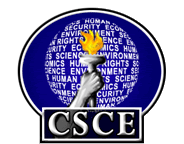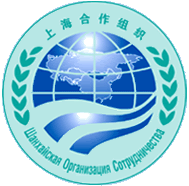The Shanghai Cooperation Organization: Is it Undermining U.S. Interests in Central Asia? (Part 2)


Today, I partook in a public hearing for the Helsinki Commission on the impact of the Shanghai Cooperation Organization (SCO) on U.S. interests in Central Asia. The Helsinki Commission staff has promised to post a webcast of the hearing on their official website, but it is not yet up. Once (and if) it does get posted, I will add it to this post (at least by link).
Republican Senator Sam Brownback of Kansas chaired the event and had probing questions about the nature of the SCO and its potential to be a threat to the U.S. Brownback was especially concerned about the position of the SCO vis-à-vis democratization and the question of Russia and China undertaking joint military exercises under the banner of an organization that appeared to be overwhelmingly anti-American. Among other things, Senator Brownback cited a recent statement by William Odom, a senior fellow at the Hudson Institute, to the effect that the SCO was the “most dangerous organization that Americans had never heard of.”
Most of the witnesses testifying at the hearing, however, were less concerned than Mr. Brownback about the challenge that the SCO poses to the U.S. in Central Asia. Assistant Secretary of State Richard Boucher was expectedly diplomatic in terms of his commentary, and he vacillated between assuring Senator Brownback that the State Department is watching the SCO closely and suggesting that the organization is not a major threat. In general, Assistant Secretary Boucher’s position was that the SCO is neither an immediate threat nor a very useful organization to U.S. interests in Central Asia, but he did concede that the evolving relationship between the Central Asian states and China has some real economic benefits for the region. Martha Brill Olcott of the Carnegie Endowment for International Peace was the most dismissive of the power of the SCO. Olcott feels that China cares little about the internal politics of Central Asia and is mostly interested purely in its own economic interests and the stability of the region. She did note, however, that the Chinese have a different concept of stable governance that the U.S. does, which accounts for our divergent views on democracy. Steven Blank of the U.S. Army War College echoed views that he has voiced elsewhere, suggesting that the SCO is definitely glued together by a general sense of anti-Americanism, but he also noted that the dual and divergent Russian/Chinese leadership of the organization weakens the ability of the SCO to develop into a real strategic alliance that could be threatening to U.S. interests.
My own statement was less dismissive of the potential of the SCO to be a political counterbalance to the U.S., and I focused on the ways in which U.S. policy has stimulated the emerging anti-American position of the SCO as an alternative to the OSCE that does not require commitments to democratic reform. More specifically, I stressed that the U.S. is losing trust among the Central Asian nations due to a perception that the U.S. is adopting a foreign policy that initiates selected regime changes around the world in the name of democracy. The SCO member states, with the exception perhaps of Kyrgyzstan, generally adopt a belief that the so-called “colored revolutions” in Ukraine, Georgia, and Kyrgyzstan (which they assume were initiated by the U.S.) along with the military campaigns in Afghanistan and Iraq (which obviously were initiated by the U.S.) are part and parcel of a unified American conspiracy to strengthen its geopolitical position through the rhetoric of democracy. I suggested the following steps to remedy this situation and regain the trust of the Central Asian states:
… it is vital for the U.S. and the OSCE to find new means for engaging the Central Asian states on long-term democratic reforms in a way that is not seen as threatening the sovereignty and independence of these states in the short-term. In order to do so, however, the fears of colored revolutions in these countries must be replaced by a true sense of mutually beneficial partnership that involves the collaborative efforts of the U.S. and the OSCE to build free markets and democratic governance in the region over the long-term. Such an approach should not be confused with being “soft” on democracy as Ariel Cohen seemed to recently suggest. The U.S. and the OSCE need to talk tough about democracy with Central Asian leaders, but also do so realistically, respectfully, and with assurances that they are committed to long-term engagement. It should be remembered that the fear of U.S. democracy promotion that is prevalent among Central Asia’s leaders is not as much a reaction against the idea of political reform as it is a suspicion that the “freedom agenda” presently promoted by the U.S. abroad is actually a smokescreen for alterior motives. In order to refute such ideas, the U.S. needs to demonstrate to the Central Asian leadership that its interests in promoting political reform throughout the region have nothing to do with forcing regime change in the short-term and everything to do with ensuring the long-term sustainability of the sovereignty and independence of the Central Asian states. If the U.S. can regain the trust of the Central Asian states in this regard, the Shanghai Cooperation Organization will likely cease to be a serious threat to our interests in the region.
The only thing that was evident from the hearing was that both the U.S. government and independent scholars are paying increasing attention to the Shanghai Cooperation Organization as it becomes a more active political participant in Central Asia. The form the organization takes in the future and its relations with the U.S., however, are important questions that remain unanswered.
I will post links to the full texts of the testimonies once they are posted on the website of the Helsinki committee.
Quote of the day from a U.S. official – “The interesting thing about Kazakhstan right now is that the opposition and the government both want the same thing; they just have different ideas about how to get there.”
Update
The unofficial transcript of the hearing is now here
The webcast, which I could not get to work, should be accessible here
And, the submissions of each witness are as follows:
Senator Sam Brownback
Representative Chris Smith
Assistant Secretary of State Richard Boucher
Sean R. Roberts
Martha Brill Olcott
Steven Blank



2 Comments:
The hearing transcript is now up:
http://www.csce.gov/index.cfm?Fuseaction=ContentRecords.ViewTranscript&ContentRecord_id=381&ContentType=H,B&ContentRecordType=H&CFID=23517316&CFTOKEN=74945379
Peter -
Thank you...the post is now updated
Post a Comment
<< Home